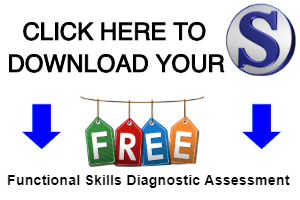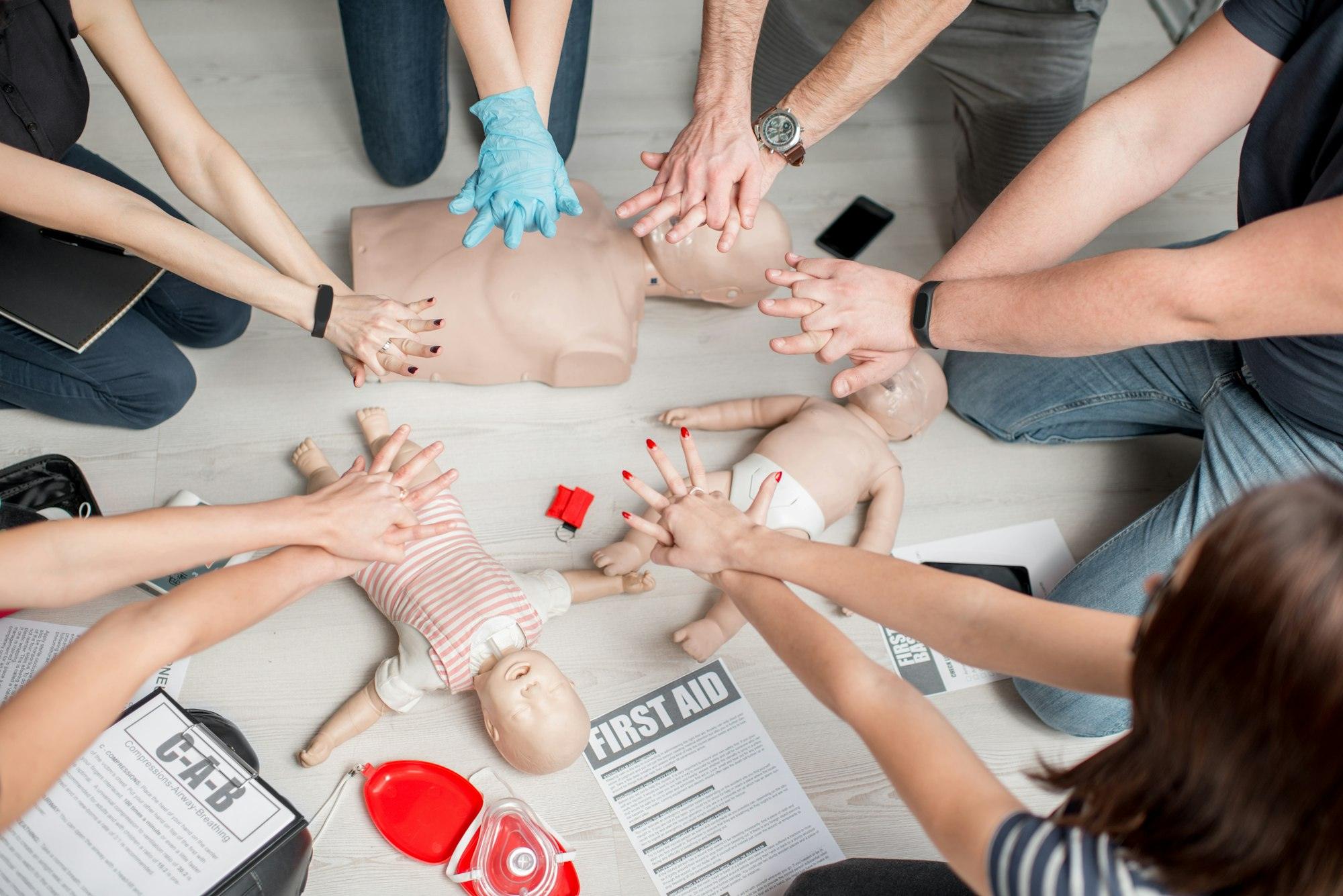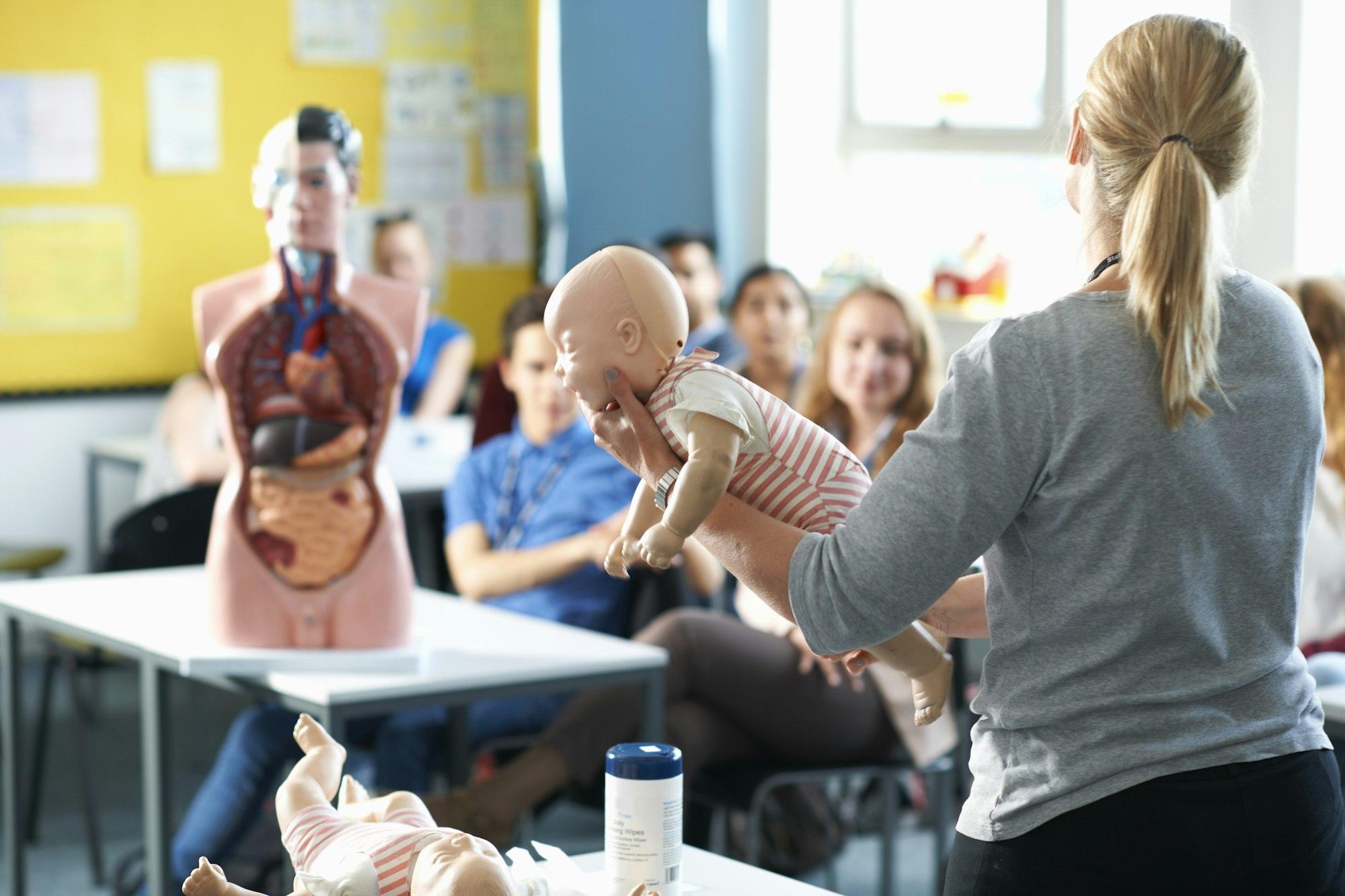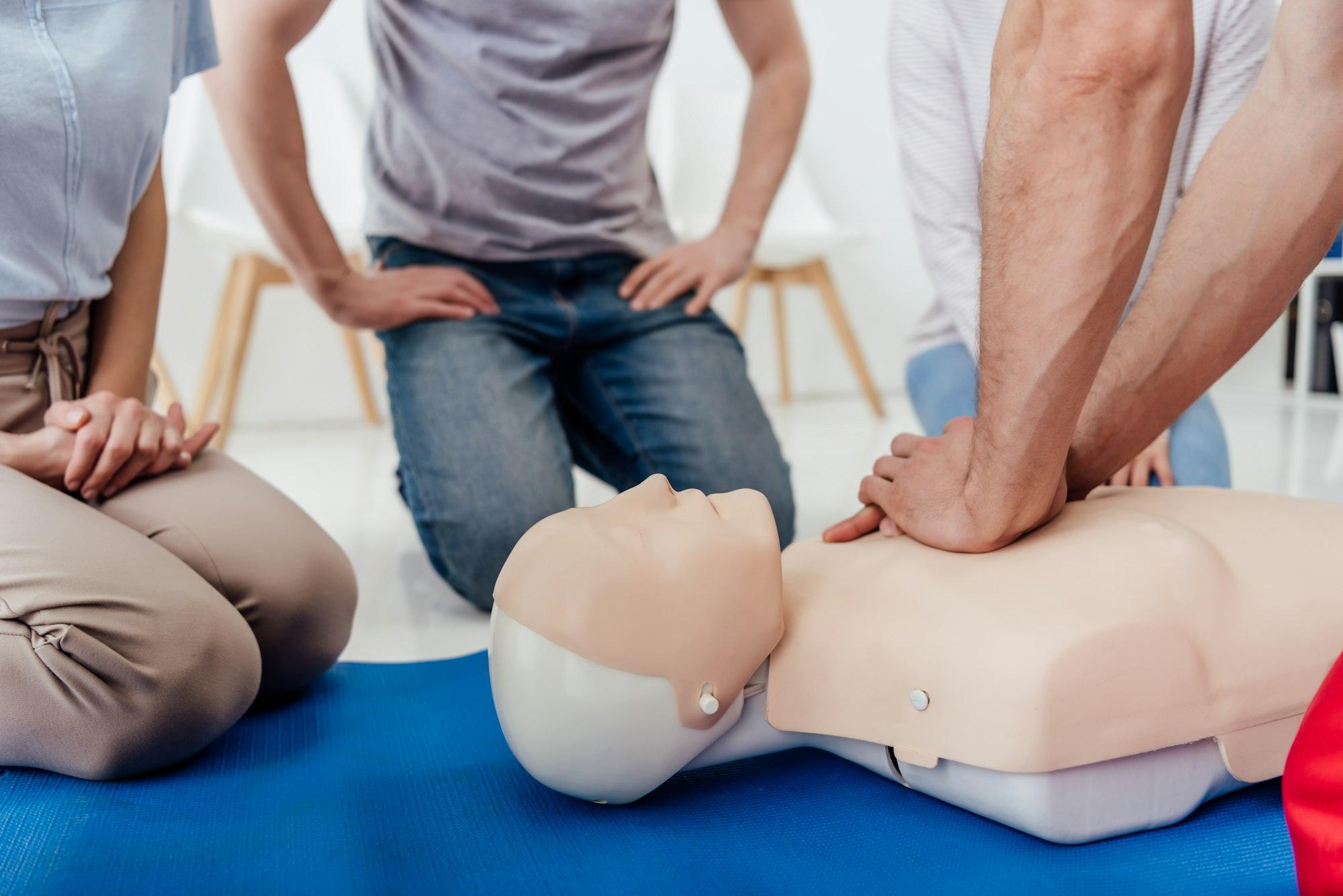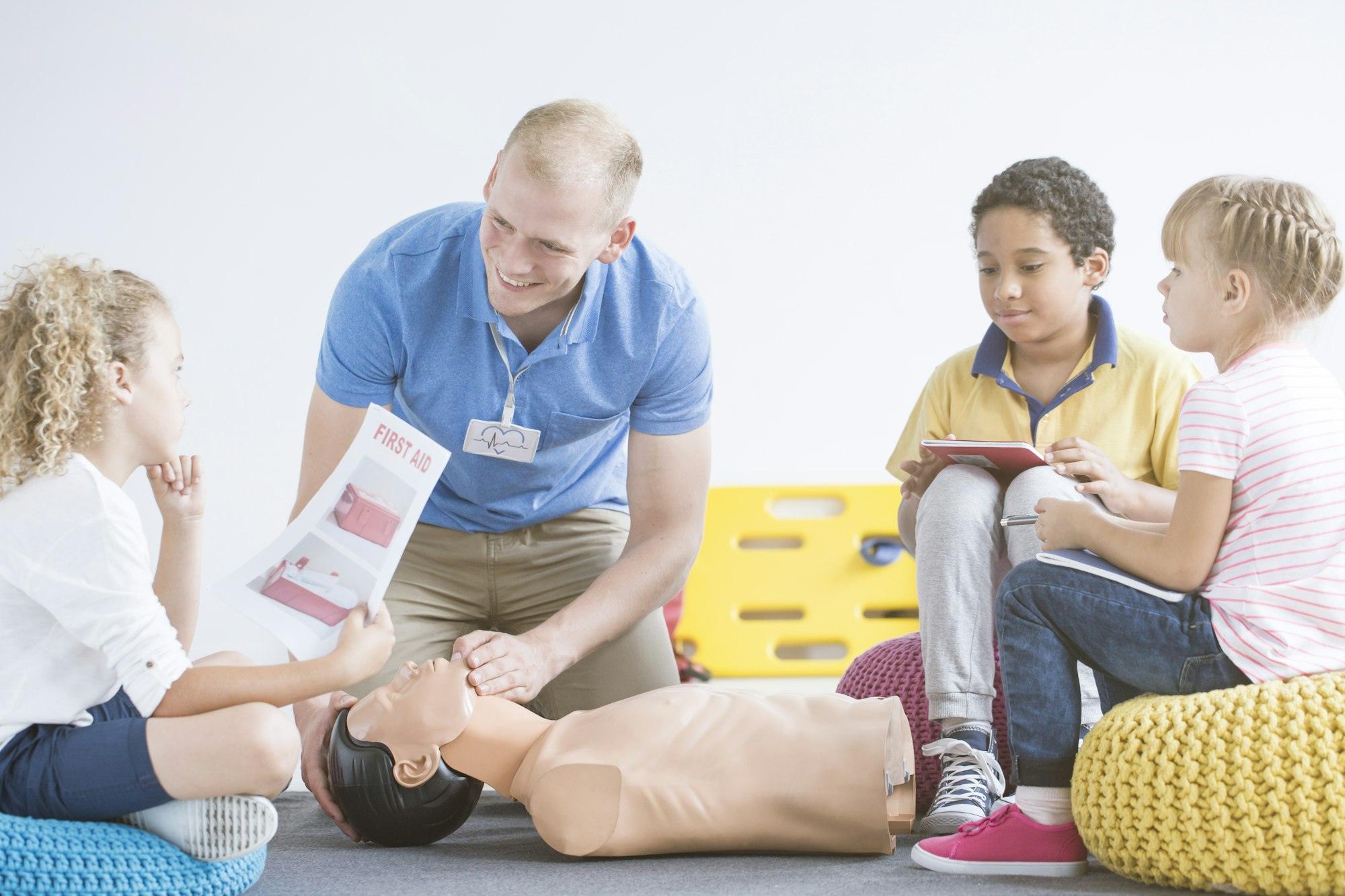Mental Health First Aid Postnatal Depression. Postnatal depression affects certain mothers once they give birth to their baby. Postnatal Depression can leave the mother feeling low for a lengthy period of time and the illness can be either mild of severe.
What the difference between the terms ‘baby blues’ and ‘post-natal depression’?
Baby blues is a temporary form of depression and soon disperse once the mother has adjusted to changes and demands of the baby. The time duration of baby blues usually only last three or four days.
Baby blues is very common with new mothers and affects around 80% of mothers and normally occurs two to four days after birth. Some common symptoms could include feeling emotional and crying for no apparent reason, the mothers may suffer a loss in appetite and experience difficulty in sleeping.
Postnatal is different as it can last for a lengthier period of time and can be severe and disabling for the mother.
Mental Health First Aid Postnatal Depression can affect 1 in 10 new mothers and occurs when the baby is in-between four to six months old. Post-natal can come on gradually or all of a sudden and the effects can be either mild or severe and common symptoms can be confusion, anxiety or depression.
What are the possible risk factors for developing postnatal depression? 
As with most Risk factors associated with mental health, they can be categorised as the following:
- Physical
- Psychological
- Environmental
Certain risk factors for developing post-natal depression can vary as there are many possibilities, risk factors for developing post-natal depression could include:
- The mother experiencing a difficult of traumatic labour or birth
- An none wanted pregnancy where the mother did not want to give birth
- Fertility issues including difficulties in conceiving
- Relationship problems, including domestic violence
- Sexual or violent abuse as a child or adult
- Lack of support from the baby’s partner, family and social isolation
What are the main features of puerperal psychosis?
Puerperal psychosis is an extreme form of post-natal depression and can also be known as postpartum psychosis, some describe it as losing touch with reality and being over demanding.
Puerperal psychosis develops very suddenly and often occurs within the first few weeks of given birth. The features can include hallucinations, delusions, depression or even suicide attempts, sudden mood swings, thoughts of causing harm or rejection to the baby and anxiety.
Puerperal psychosis can cause irrational actions and behaviour, it is similar to the characteristics of bi-polar and schizophrenia. Characteristics vary depending on the individual and previous mental health.
What are the feelings an individual may have when experiencing post-natal depression?
Post-natal depression can affect women in various individual ways. It often starts within the first year after giving birth and can develop all of a sudden. Mental Health First Aid Postnatal Depression
An individual that suffers with postnatal depression may experience a wide range of feelings, these may include feeling despondent and constantly thinking of negative thoughts, they may also feel very tired and lethargic. A loss of appetite often may occur along with a disturbed sleeping pattern.
The individual may be hostile to their partner or the baby, have panic attacks and a feeling of anxiety.
Mental Health First Aid Postnatal Depression
Postnatal Depression can affect people in different ways, for example;
The mother
The mother may have a lot of depression and negative thoughts with postnatal depression, but the effects may vary depending on the severity of the post-natal depression. Other factors that may affect the mother could be the lack of motivation which could result in the individual neglecting themselves or the baby.
They may feel isolated and have difficulty sleeping, this will mean they will be tired and affect how they do things. These can lead to anxiety and increase the risk of a panic attack.
Bonding with the baby
It’s vital for a mother to bond with her baby so she can offer the baby the security, emotional safety and well-being that is required.
Postnatal depression can affect bonding as it could cause the mother to feel unable to look after the baby, the mother may feel failure and being detached because of bonding problems. They may want no physical contact with the baby and in serious cases may have thoughts of harming the baby.
Others
It can make it sad and uncomfortable for friends and family to witness the mother unable to cope with having a baby and dealing with depression.
They may feel helpless if the mother refuses to be helped and she may seem unapproachable – this will cause uncertainly of how to react. Partners may suffer emotionally and financially as they may need to take time off work to support the mother.
Partners, friends and family may feel helpless and this could lead to friction and conflict. They may also feel partly to blame or even become depressed themselves.
Mental Health First Aid Postnatal Depression – What are the preparations for birth that may reduce the risk of postnatal depression?
The mother, family and friends can all help in a collective way to help reduce certain risks of post-natal depression – this can be done well in advance of the birth by clear planning and preparation
Some ways of reducing the chances of postnatal depression would be to have ideas in mind in the planning ahead. Good exercise and a healthy balanced diet during pregnancy can help the mother emotionally and also her unborn child. To have a birth plan of wishes and preferences may also reduce the risks.
The person should avoid stress where possible and have appropriate support thought the pregnancy and decide on a birthing partner. A good way to avoid the possible stress is to attend antenatal sessions with their partner and keep good communications with the local health nurse.
The knowledge and opinions of mother hood from other mothers to get and insight into their experiences or any changes and what may occur would also help.
What are self-help measures for post-natal depression?
By having self-help measures in place this can allow a mother to manage any possible risks of Post-natal depression
The following self-help measures for post-natal depression could be:
- Eat a health balanced diet and not go too long without food – this will keep sugar levels up and this can help stop any anxiety.
- Joining support groups and sharing experiences with other sufferers, this can gain new ways of coping and reduce the feeling of isolation
- Learning to nap when the baby does– this will keep the mother feeling less tired and feeling low
- Don’t drink alcohol or use any drugs or substance – not only could this affect the unborn baby but also could make the mother incapable of any other self-help measures
- Talk to a supportive person such as a friend or family member – by doing this, it can allow others to have an insight into ways they can support you. Also, it can give the sense of release to open up and talk about feelings.
- Set daily and weekly goals and targets – this can help with the mother’s routine with the baby
- Do regular steady exercise such as walking – this will help with recovery and keep a health mind set
- Relax as much as possible and don’t take on unnecessary tasks or challenges – this will keep the mother fresh and motivated and reduces the risk of anxiety
What are possible treatments for post-natal depression?
Possible treatments for postnatal depression could be:
Counselling or talking therapy
This can help the sufferer open up and talk about their feelings, then the counsellor can help the individual find ways to change things for a happier life. Mental Health First Aid Postnatal Depression
The two main types of therapy are cognitive therapy and interpersonal therapy
A type of psychotherapy which is about the way people (in this case mothers suffering post-natal depression) reflect on things that affects how they feel emotionally and in general.
It spotlights on the current way of thinking and behaviour instead of thinking about past experiences.
Hormone therapy can reduce the symptoms of post-natal depression, it is a replacement of oestrogen what the mother maybe short of after childbirth.
Anti-depressants
Can be effective treatment for post-natal depression but must be prescribed by a doctor, normally your local GP. The Anti-depressants can help the mother with her symptoms by allowing her to function better and engage better with her new born. The Anti-depressants may only be given on prescription if the mother is suffering with moderate to severe depression. Mental Health First Aid Postnatal Depression
What local resources are available to an individual experiencing Mental Health First Aid Postnatal Depression?
Resources
- local GP’s can prescribe medication or refer the person to an expert, counsellor or community mental health team. A the GP can refer the mother to a health visitor to arrange regular home visits to offer advice and support.
- A counsellor can be very helpful as they can offer an impartial and objective view on how the person is feeling. The community mental health team will be a constant network of support.
Treatments
Treatments available could be:
- Guided self-help is where the GP can provide information to help the individual self-help, these cover the issues the person is facing and provide practical advice on how to deal with them.
- Antidepressants can be prescribed by a GP to help an individual deal with this condition, this will usually be a last resort such as a severe form of PND and counselling has not been successful.
- Talking therapies encourage the person to talk through their problems, two common forms of talking therapies are cognitive behavioural therapy which aims to break negative thought patterns and find new ways of thinking. The other one is interpersonal therapy which aims to identify if relationships with others may be contributing towards feelings of depression.
Please click here to download the The Power of Positive Thinking videos and resources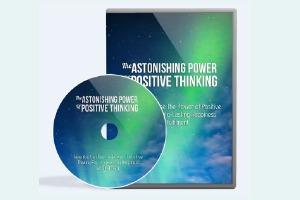
What resources can a person with puerperal psychosis require?
Resources an individual with psychosis would require would be:
- Referral to a community mental health team would happen if the mother is suffering a severe condition or if the individual does not respond to current treatment. The community mental health are a specialist team of nurses, occupational therapist, psychologies and psychiatrists
- Mother and baby mental health clinic maybe recommended if no one can look after the baby and the CMHT feel it will impact on the baby’s development to separate if from its mother.
- Admission to hospital can be a resource if the condition is extremely severe and there is deemed to be a risk of self-harm or harm to the baby. If there is support from family then it may be recommended they care for the baby until the mother is well enough to return home. Mental Health First Aid Postnatal Depression
What are the treatments a person with puerperal psychosis would require?
There are two main treatments, these are which would be a
Medication for puerperal psychosis can be made from a combination of; mood stabilising medication such as an anti-epileptic drug, an antipsychotic to help symptoms of psychosis or a tranquilliser to help the mother keep calm and relaxed.
Under no circumstances can the mother breastfeed their child id they are taking any types of these medication.
Electroconvulsive therapy may only be used under special circumstances and when other treatments have not been successful.
Electroconvulsive therapy is a process that requires to be taken out under a general anaesthesia.
The procedure sends electric currents to the brain, in turn to purposefully cause a brief seizure to the individual. The whole procedure is thought to make changes to the brain by decreasing the number of connections.


